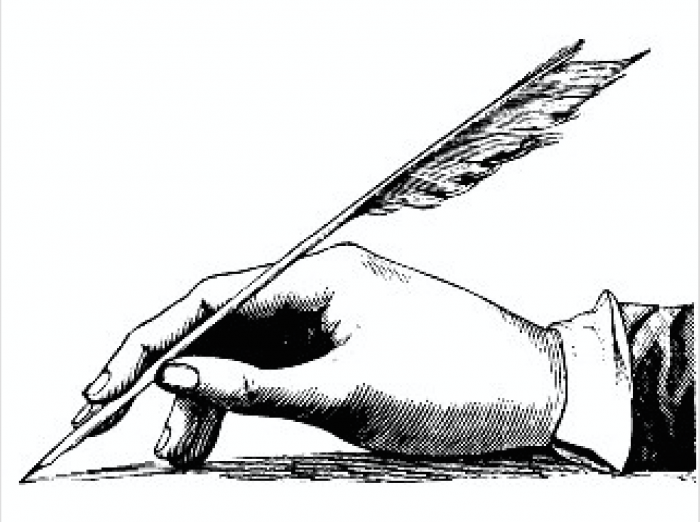
Dearest Reader,
I was recently privy to the story of a certain UVic alumnus who expressed dissatisfaction at a call from his alma mater requesting the generosity of a donation. As textbook and tuition costs for the previous four years of this young man’s life had seemed quite ‘generous’ enough, he declined with an air found to be insufficiently tactful by the caller. Now, while I too have suffered discomfort beneath the oft-arbitrary hand of today’s academic financial climate, I also maintain a few friends employed at call centres, and the rebuking of one engaged in such a thankless task turned my mind to wondering: How might modern colleges more efficiently, and with a friendly disposition, extract funds from reluctant current and former students? Certainly, an approachable façade is essential, as is just the right measure of forceful implication. I have at least observed a handful of appropriate models, some of them in noir films.
When calling for donations, those employed at the task would do well to adopt a subtle manner and a kind, helpful, even concerned demeanour. For example: “I don’t wish to trouble you, but I must remind you that your degree is still on file with us, and it would be a terrible shame if it were to disappear from our records, leaving no trace of your academic legitimacy, wouldn’t it? But we could prevent that from ever happening if you were to, say, make a donation to our cause…” This is best accompanied by a suitably respectful form of address, such as “guv’,” or “my lad.” I will not be so crass here as to suggest that the university’s collectors could learn from their own institution’s robust communications programming, yet there can be little denying the proffered method’s improvement in motivational insight.
As anyone who has endeavoured to balance a budget will agree, funds so often slip through the cracks of even the simplest of bureaucracies and add up eventually to a fair sum. One example of such for UVic may lie in the loss of library material, owing in part to the poorly small sum of deterrence in daily fines. One hears all the time on campus, “If it was more than two dollars, maybe I’d care.” To the same token, the librarians seem often to catch the response to accusations of late returns that they failed to send sufficient reminder notices. As the responsibility for recollection of due material thus clearly lies on the institution above the student, I can only suggest that more persuasive approaches are here required as well. For example, librarians might pay friendly personal visits to students owing materials or fines to check up on their wellbeing. Because such visits would be paid outside of regular class settings, perhaps the librarians might dress with pomp as befits their official station — something formal, such as pinstriped suits, hats, possibly canes. They might conceivably offer students “protection” from future fines for an increased fee in cash on the day. I at least will affirm that, had a pair of finely dressed gentlemen shown up at my door when last my library books were overdue and employed a little force by implication (possibly in an Italian-American accent), I would have coughed up on the spot.
The chief complaint against the above utility-minded proposals are, I am told, a matter of a quaint and curious old custom referred to as “Eth-icks.” However, in light of recent examples of that principle’s antiquated nature (for instance, the university’s admirably even-toned response to the women’s rowing team scandal), I see small reason not to dispense with such ungainly ideas here as well.
On an entirely unrelated note, Dearest Reader, I would like to remind you that should you find anything I have written here distasteful, I would be more than happy to cease my ramblings forthwith in return for a little monetary compensation. But then, it would be a shame if something were to happen to me, wouldn’t it?






